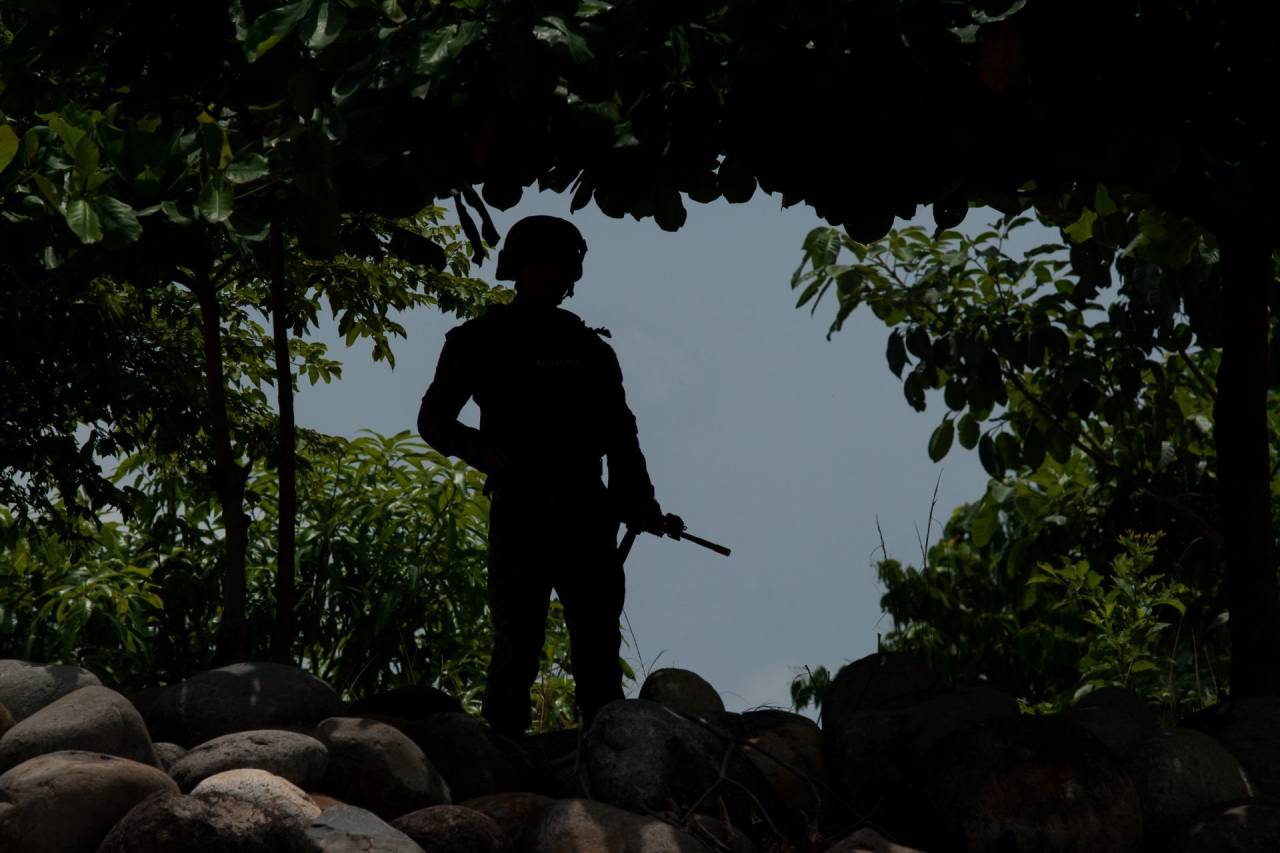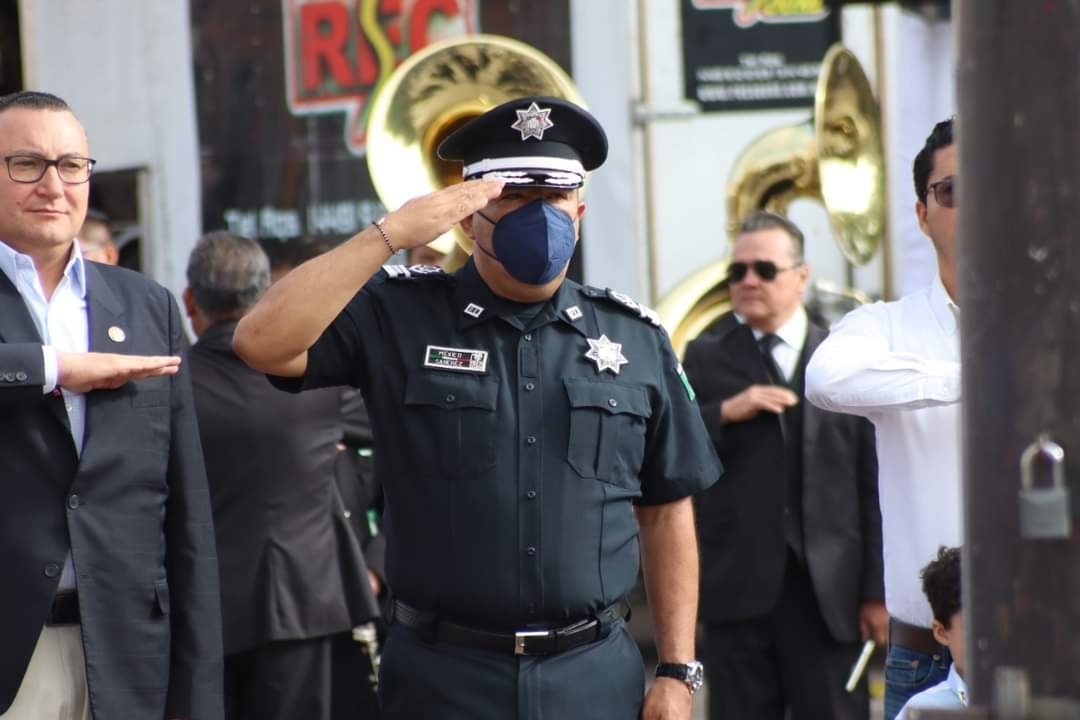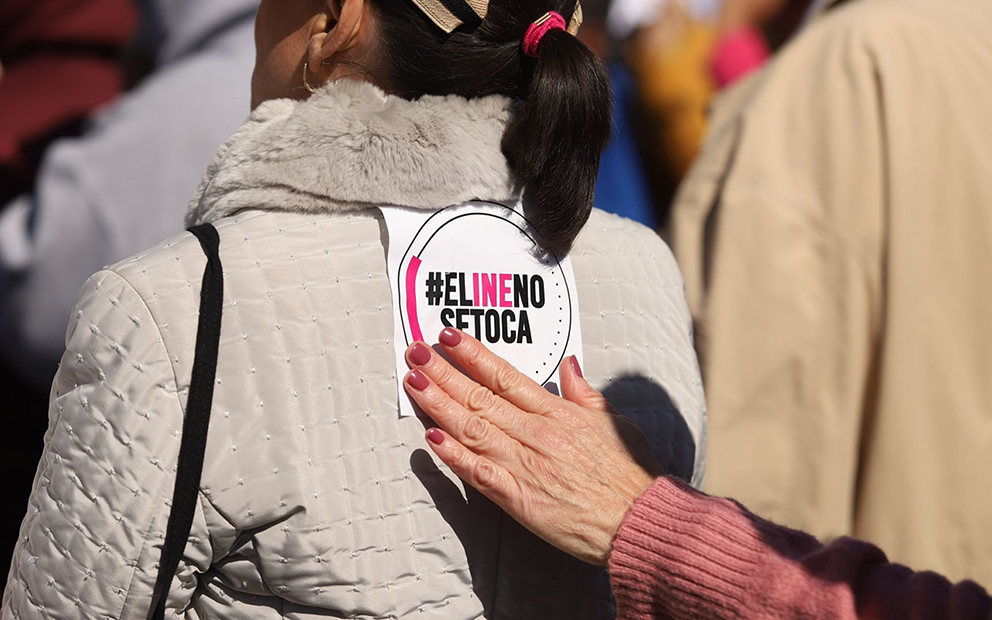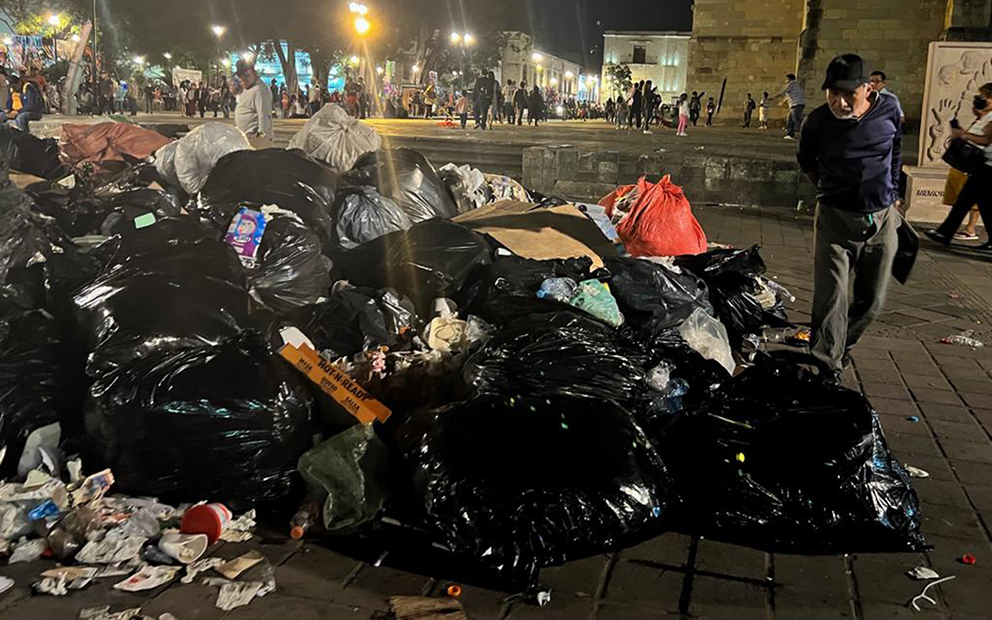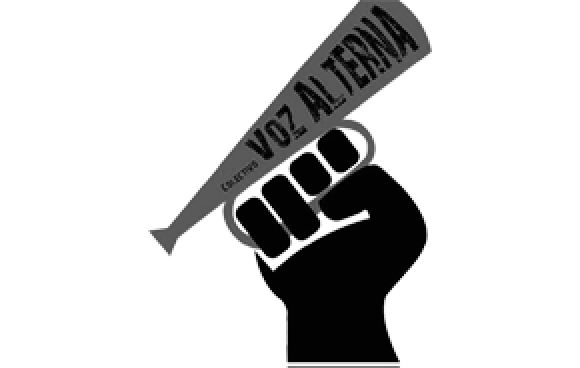Rich countries do little to slow global warming, but they do invest heavily in their armed forces, researcher Nick Buxton explains. They draw new borders, detain migrants fleeing extreme climates, and exploit new resources such as lithium. They seek to maintain this model at any cost
Text by: José Ignacio De Alba, originally published November 7, 2021.
Photo by: Galo Cañas / Cuartoscuro.
Translated by: Elysse DaVega for Pie de Página in English.
GLASGOW, SCOTLAND– Long before politicians began to take measures against climate change, the armed forces of the wealthiest countries in the world were already prepared for the consequences of extreme weather. In an interview, scholar Nick Buxton argues that global warming has provoked an increase in military and border investments.
Buxton believes the term «climate security» will continue to become more common every day. It reflects the security perspective that countries have on climate change. For example, countries know that extreme climate conditions bring instability and conflict, and this is why they prepare themselves to face new conflicts. In fact, the victims of climate change are perceived as «threats» that wealthy countries control with military and police forces.
Buxton works with the Transnational Institute, a Dutch organization that promotes justice and peace, explains the conclusions he reached after the COP26 climate change summit:
«I noticed that rich, industrialized countries were cutting back their commitments to act on climate change. At the same time, they were preparing national security plans to show how they would face the consequences of global warming.»
The researcher explains that the term «global warming» is actually not new at all. Since the 70’s and 80’s, wealthy countries have added the environment to their list of concerns in their security strategies.
To Buxton, it’s paradoxical that while many politicians such as Donald Trump denied climate change, their armed forces were preparing for situations resulting from extreme climate conditions.
In fact, climate change also affects these armed forces: a report from the Pentagon revealed that approximately 1,500 U.S. operations bases will have to be modified due to climate change. Buxton explains that it’s not a topic of much public debate, but there’s an upward trend of security agencies investing in the research and the prediction of natural disasters.
“Where is this happening the most?”
“In the most militarized countries, of course. The United States, Australia, Canada, Japan, New Zealand, and the European Union as a whole. However, developing countries like India are following this trend. These countries receive funding from the U.S. and other countries to militarize their borders. This is also what happens in Mexico and countries in North Africa, which are becoming virtual borders for their powerful neighbors.”
“What do you think of Mexico?”
“Mexico has one of the rawest forms of capitalism, but it can also teach the world many lessons. There are examples of organization and resistance that can be followed.”
To Buxton, control over individuals’ mobility is another consequence of the militarization of climate change. It’s the same everywhere. «It begins with migrants because they’re the most unprotected and segregated, but it carries on with other vulnerable people.»
The researcher explains that sufficient measures aren’t being taken to protect the most vulnerable from harsh climates. «[Rich countries are] going to subject a large portion of the population to extreme conditions, and that’s not all– they’re going to consider them enemies.»
Buxton says that the lives and rights of those most affected by climate change are being threatened.
«Countries have invested large sums of money into security plans. They’re capitalizing on the melting of the polar ice caps, and they’re breaking new ground in resource extraction.»
He explains that the green economy is making some resources strategic for military reasons. Minerals such as lithium, which is used to make batteries, could lead to military intervention in some countries. According to Evo Morales, interest in lithium was behind the coup in Bolivia.
Armies will gain more influence if people aren’t aware and don’t monitor what’s happening in their countries, he explains.
“How should countries prepare?”
“Security forces aren’t denying climate change, but they’re not allies. It’s very dangerous to grant more power to security agencies every day. We have to begin with awareness, as we do in many cases, but we also have to build other models with which to face the crisis, solutions that start from the bottom up. For instance, how can we help people find safe places to live, putting peaceful solutions before anything else. We have to create shared models of security, because a nationalist view won’t help us at the moment.”
José Ignacio de Alba was educated in Catholic schools until he became atheist. He is a shy globetrotter. He studied journalism and never graduated. He tends to trust more in older narratives than in new ones. He likes to write stories.
Click here to sign up for Pie de Página’s bi-weekly English newsletter.
Ayúdanos a sostener un periodismo ético y responsable, que sirva para construir mejores sociedades. Patrocina una historia y forma parte de nuestra comunidad.
Dona

